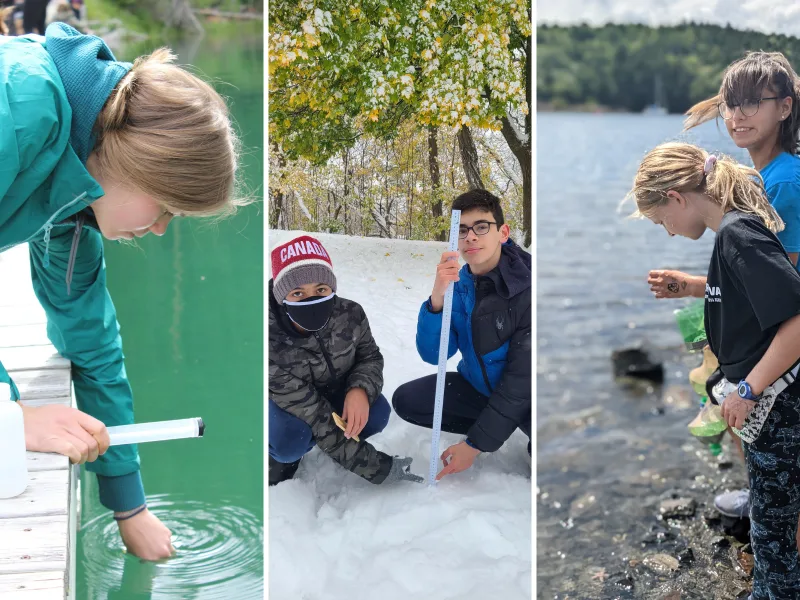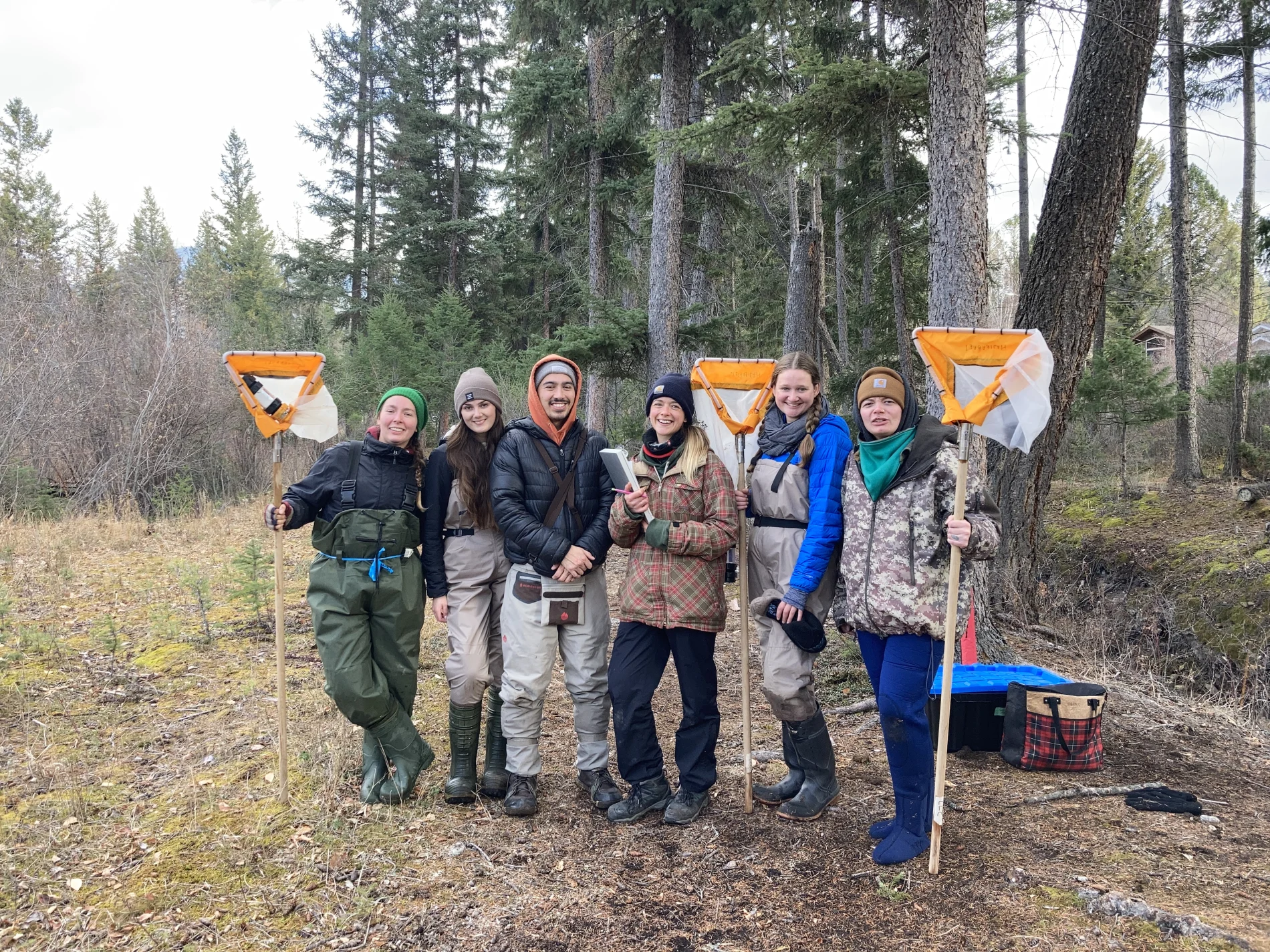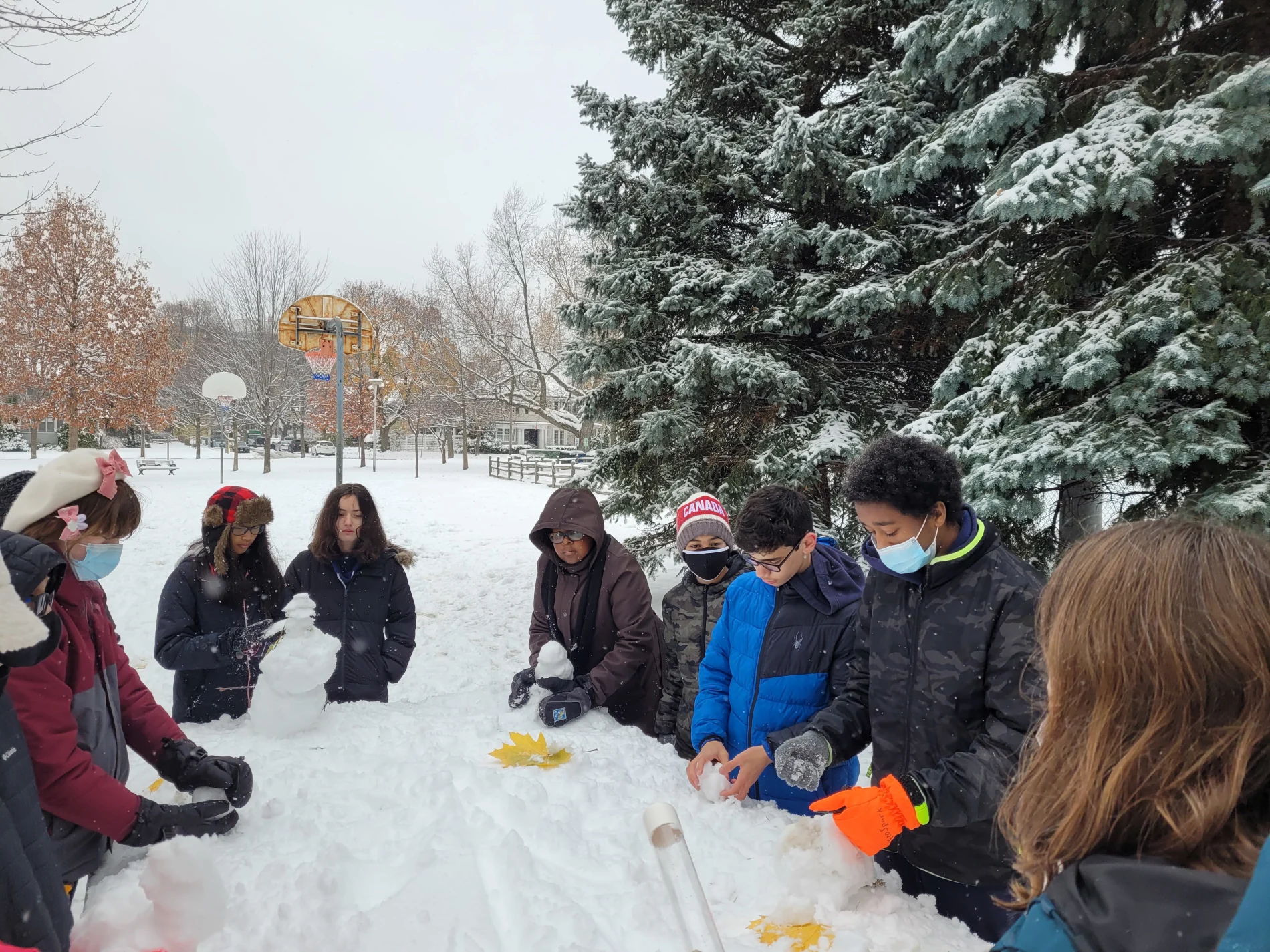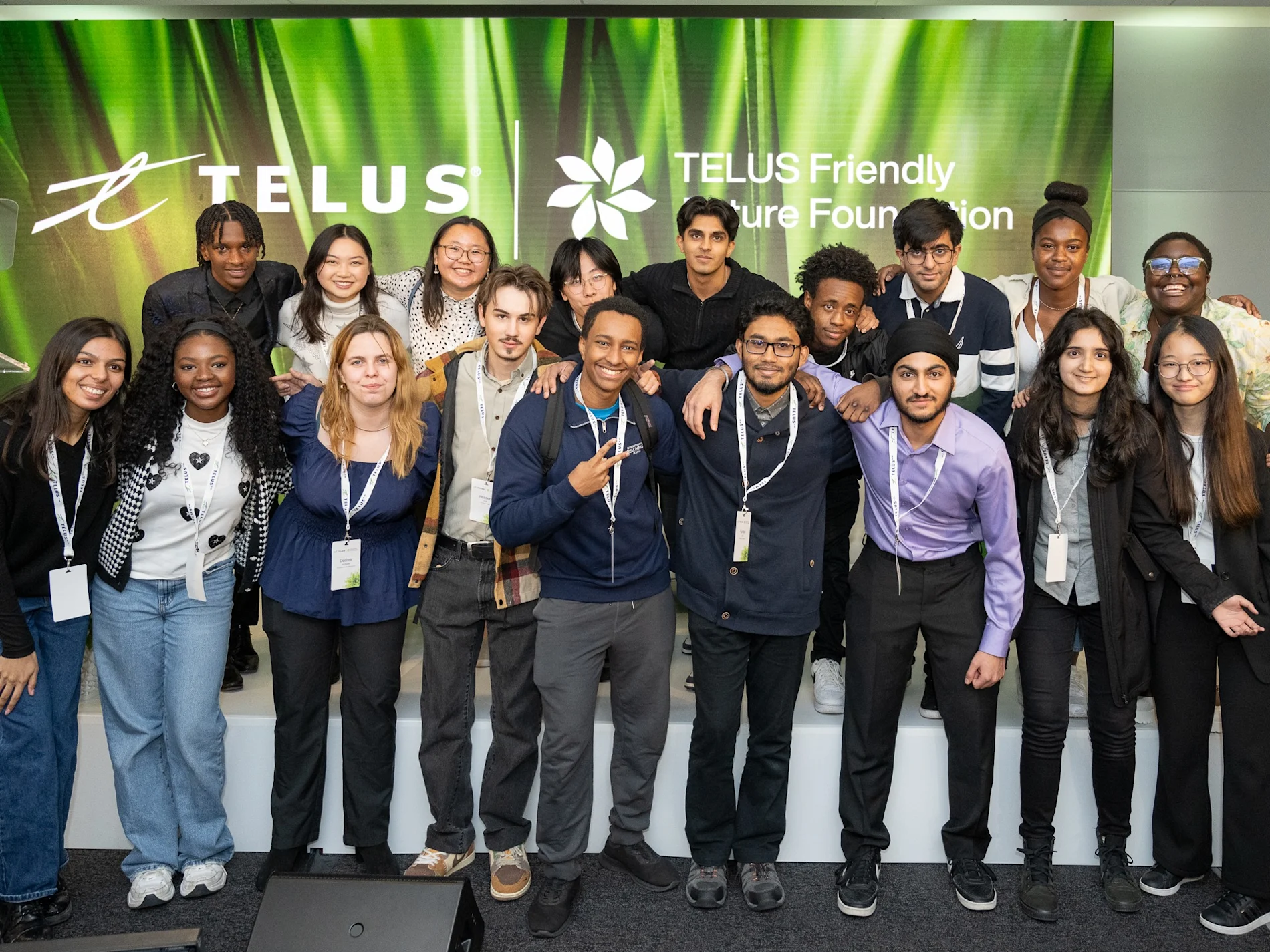
Giving back
Helping leaders of tomorrow tackle today’s biggest challenges
Jan 26, 2023
It’s not easy being a young person in Canada today.
Mental health issues are on the rise, with 17 per cent of kids between the age of 5 and 17 years reporting poor or fair mental health, according to Statistics Canada. Layer onto this increasing inflation and cost of living, and increasing passion among millennials and Gen Zers about protecting our environment and tackling the climate change issues that they are inheriting.
“Young people understandably have anxiety – and especially climate anxiety,” says Dana Buchbinder, citizen science coordinator at EcoSpark, a non-profit that teaches school-aged kids about nature. “A lot of students are asking, ‘How can we make a difference?’”
Fortunately, today’s youth don’t have to find all the answers on their own. TELUS Friendly Future Foundation, a registered charity that supports the well-being of youth, is there to help our leaders of tomorrow by financially assisting Canadian registered charities that are tackling today’s biggest challenges.
In support of that critical work, the Foundation launched
their Innovation Grants program
, providing multi-year funding of up to $200,000 for breakthrough ideas in youth mental health or environmental education and climate action programs.
To date, the Foundation has committed more than $1.6 million to 18 registered charities in communities across Canada through these grants.
“Due to continued challenges related to the global pandemic and concerns around the state of our environment, youth in communities across Canada are facing unparalleled pressures. This has taken a heartbreaking toll on the mental health of our next generation,” says Shanan Spencer-Brown, executive director, TELUS Friendly Future Foundation. "By supporting innovative charities with breakthrough ideas in youth mental health or environmental education and climate action programs, we can help youth from under-served communities get the tools and support they need to rise above the situations they’re facing.”
A
wide range
of organizations received grants last year, including national charities such as Kids Help Phone and Big Brothers Big Sisters of Canada and smaller groups helping youth tackle a variety of issues. Here’s what three organizations are doing with the Innovation Grant funds they received.
SuperNOVA

Halifax’s Dalhousie University, located a short walk to the Atlantic Ocean, is one of the few places in Canada where youth can study ocean science first-hand.
SuperNOVA
, a not-for-profit initiative based out of Dalhousie which creates opportunities for youth in Atlantic Canada to engage with STEM (science, engineering, technology and math), recently expanded its ocean science program with the Ocean Data Project.
While kids learn all about the ocean, Caitlin MacPhail, partnership and development coordinator for SuperNOVA, says that participants also interact with ocean-related data that’s typically hard to access.
“A lot of ocean data is behind a paywall, or it’s within very detailed scientific articles,” says MacPhail. "The Ocean Data project makes the data more accessible to youth."
SuperNOVA’s Ocean Data Project, funded by a TELUS Friendly Future Foundation Innovation Grant, will be run with 600 Indigenous youth in grades 3 to 12 across Nova Scotia. The program will use Sofar Spotter Buoys, which are about the size of a basketball and can send real-time information back to the groups, to study such factors as wave height and sea surface temperature. Students will also learn how to analyze that information and think about what it means for the health of the ocean.
The group will also be engaging with Indigenous communities to talk about the insights they’ve discovered. “Working collaboratively with Mi’kmaq communities, we are able to strengthen place-based connections for the students, helping them relate to what they are learning,” says MacPhail.
Living Lakes Canada

Canada’s lakes, rivers, streams and wetlands are near and dear to many people’s hearts. Unfortunately, a lot of these lakes are being threatened by climate change in some way. Canada’s lakes, for example, are warming
twice as fast
as lakes around the globe.
Living Lakes Canada
, headquartered in Nelson, BC, hopes to change that. The organization works to protect the long-term health of Canada’s watersheds through water monitoring, environmental stewardship and climate adaptation strategies.
“Many of the impacts of climate change on water are going to have disproportionate impacts on youth,” says Andy Miller, deputy director of Living Lakes Canada. “We want to equip youth to be able to deal with these issues through education and the tools of water stewardship.”
That includes creative concepts like their
National Lake Blitz
program, which encourages volunteers to generate a “snapshot” of lake health in Canada by collectively taking temperature readings, water colour reports, and pictures of shorelines and wetlands.
TELUS Friendly Future Foundation’s Innovation Grant will go toward a Living Lakes Canada Centre of Water Excellence for Youth, which focuses on people between 12 and 29 years old who might not typically have the opportunity to participate in water stewardship, STEM studies or careers. Today’s youth disproportionately bear the brunt of the climate crisis and this program specifically promotes water literacy to empower youth in climate action.
As part of the project, the First Nations ?Aq'am Guardians in Training program will work with the Kimberley Youth Action Network. Teenagers from two neighbouring communities will collect baseline data for the protection and restoration of Cherry Creek near Kimberley, BC., The river, running dry and polluted by agriculture, is the watershed for the Indigenous community.
EcoSpark

Traditionally, school kids who wanted to study nature would be loaded onto a bus and driven to outdoor education centres, often outside of city boundaries.
EcoSpark
, which engages children and teens in grades 6 to 12, takes a different, hyper-local approach: Through its school programs, it helps students discover nature in their schoolyards and local parks.
One part of their citizen science program, Tree Benefit, has students map out trees on school property by picking a tree and adding it to an app. Kids and teens measure the tree’s benefits, including how much carbon it sequesters, the runoff it absorbs and the air pollution it removes. Other participants might plant a pollinator garden to help bees and butterflies. Additionally, the data students collect in EcoSpark programs is contributed to citizen science databases such as iNaturalist, that support conservation.
What students are learning outside also dovetails with their school curricula. “Working outside in nature also improves both the teachers' and students’ mental health,” says Paul Mero, executive director at EcoSpark. With funding from a TELUS Friendly Future Foundation Innovation Grant, EcoSpark can expand this program to high-need schools for free, allowing the organization to reach nearly 6,000 marginalized youth in southern Ontario.
These kinds of projects, whether it’s mapping school trees or tracking how many birds live in a tree, are changing students’ perspectives on their environment, says Mero. “It opens up their minds and helps them reconnect and say, ‘I actually share my school ground with all these living things.’ They realize that we’re all co-dependent, and we all live within one natural world, so we need to make sure that we’re taking care of it.”


